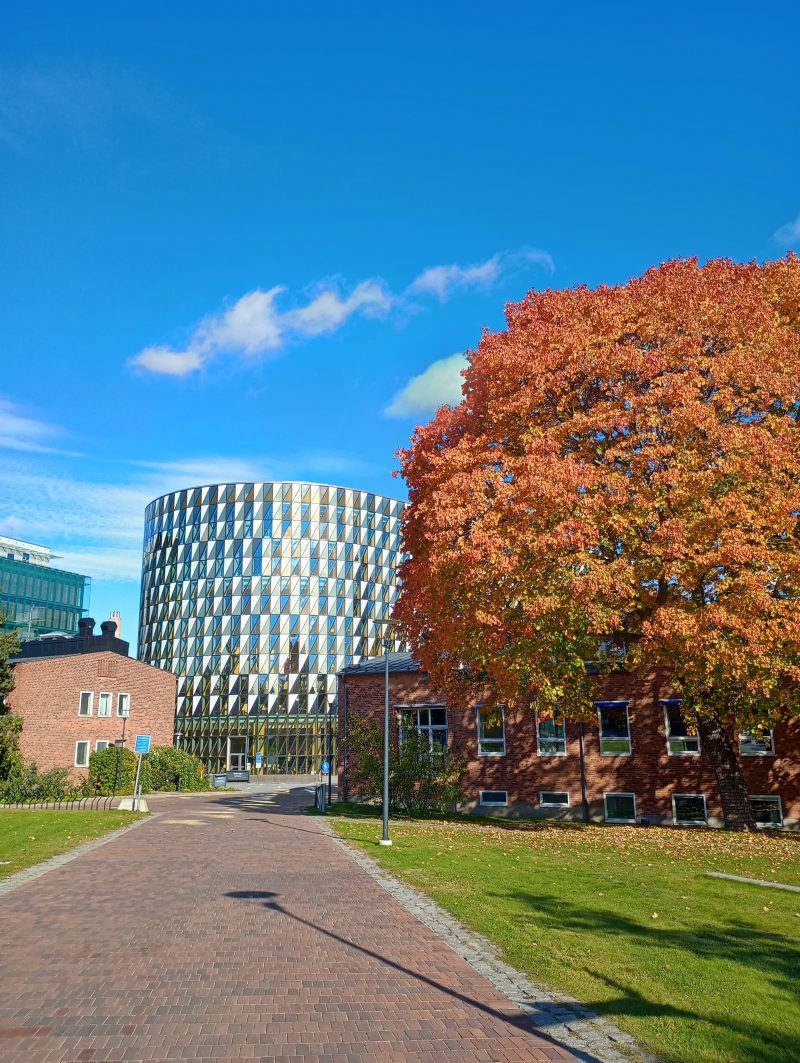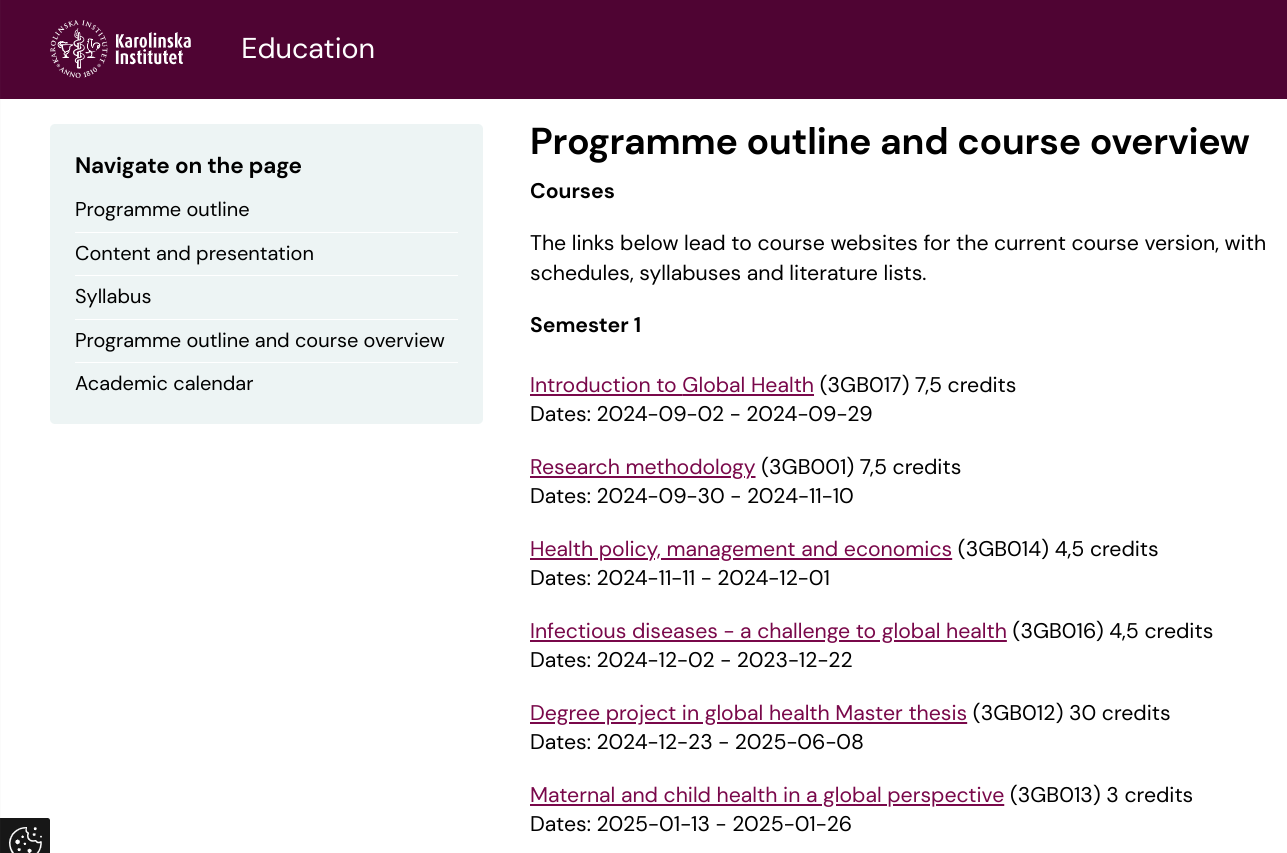
4 surprising academic contrasts in Sweden and KI
Although there were plenty of surprises I encountered when first moving to Sweden, some of the academic differences I noticed were definitely at the top of the list. I am originally from the US, so some of these differences may not apply to your own experience. However, since talking with peers from around the world, I have noted many of these surprises are common across the international student body at KI.
Course structure
In the US, it is common to take multiple classes at once, both in bachelor’s and master’s programs. However, at KI it is the norm to take just one class at a time. For example, in the global health programme, so far, we have taken the Introduction to global health, Research methodology, and the Health policy, management and economics courses one after the other.
Students often will take classes for their course nearly every day for a few weeks. The duration of each course varies by course, but the longest course I have taken at KI until this point has been the Research methodology course, which lasted around 4-5 weeks. Sometimes, it feels like courses can move quickly, especially since there can be many hours of class time daily and a lot of material gets covered. In global health, our classes often range from 9 in the morning to 4 in the afternoon but can vary.
Even with long class hours, there are still a mix of in person classes, distance learning, and asynchronous self-study time. Therefore, students may not need to come to campus every day for instruction.

Group work
In a programme like global health, collaboration is integral to the field and group work assignments are a key part of our learning in each course. In my past experience, group work usually, but not always, took place after class hours and on the personal time of group members. However, within our course, there is dedicated time in the schedule for these projects. Although such projects are common within global health, students in other programmes have shared with me that they often engage in group work as well.
Testing
Like the dedicated time for groupwork in the schedule, there is also allotted self-study time ranging from 1 to a few days before course exams. In the US, other than for final exams at the end of a semester, there is typically no special time set aside for self-study. Having this time to study has proven to be very useful and has personally reduced my stress in reviewing for exams at KI.
Another unique aspect of testing here is the concept of re-tests. Again, in my personal experience, re-tests were very rare. However, at KI and in other institutions in Sweden, re-testing is an option for students. Thus, students have an opportunity to assess their weaknesses and try to show what they learned on exams beyond a first attempt.
Grading scheme
Lastly, the grading scheme at KI for most programmes is different to what many international students may expect. Instead of traditional letter or numerical grades that are revealed to students, exams and courses are graded into 3 categories: fail, pass, and pass with distinction.
In my experience so far, after exams are graded, we are sent a notification to check our results and we receive one of the three designations mentioned previously. However, the actual numerical grades are not known to students. You can learn more about the grading schemes at KI here.
When I first started my studies at KI, I did not realize how many interesting differences and similarities there would be between my past experience studying at a university in the United States and my current experience in my master’s programme. It has been a fun journey becoming familiar with the unique aspects of a master’s education in Sweden and at KI, and I am looking forward to learning more and sharing with you all!
Adhithi - Global Health
Hej, I'm Adhithi! I'm from the US and studying in the Master's Programme in Global Health. I applied to KI to learn more about fields like child and maternal health as well as health policy. I am also thrilled to explore Stockholm and explore its nature and cafe scene. After my studies, I will integrate global health and medicine to address maternal and child health disparities and become involved in policy change. During my time in Scandinavia, I look forward to hiking, travelling to nearby countries, and trying new pastries!

0 comments